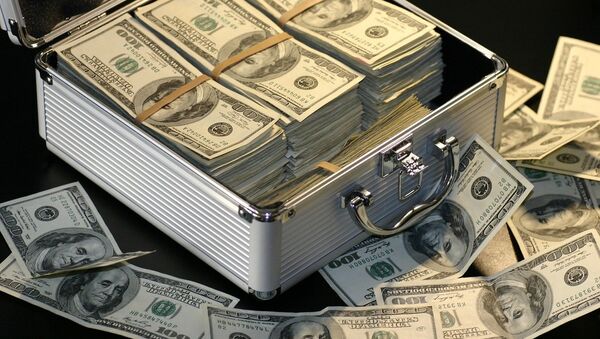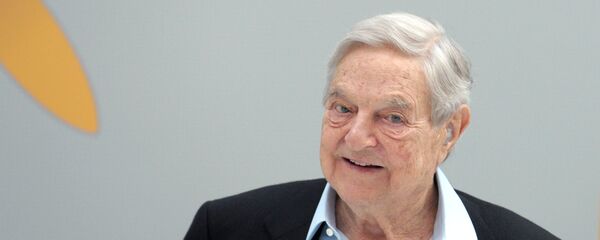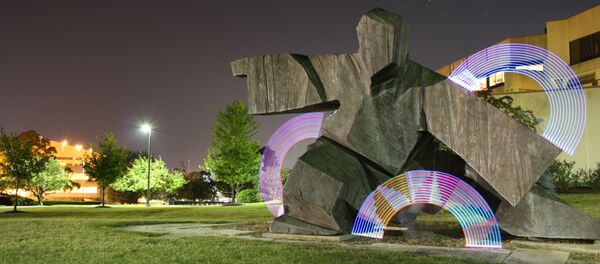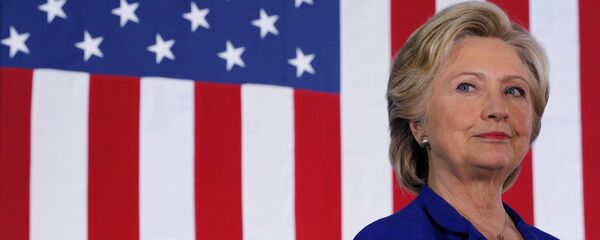The tactic of using nonprofit structures to funnel money into the political arena has an established history among Democrats and Republicans alike. Under the stripped-down guidelines, powerful lobby groups in Washington such as the National Rifle Association and the Chamber of Commerce no longer have to tell the IRS who is supplying them with fresh cash every year.
The Trump administration has now eliminated the rule mandating that 501(c)(4) organizations include the names of donors on tax forms, The New York Times reported July 17. "The IRS simply does not need tax returns with donor names and addresses to do its job," Treasury Secretary Steven Mnuchin, a former Goldman Sachs banker, said Monday.
Sen. Mitch McConnell (R-KY) celebrated the move the same day, saying on the floor of the Senate chamber, "It's particularly welcome news to those of us who are intently focused on defending the First Amendment, for those of us who raised concerns during the last administration about activist regulators punishing free speech and free association."
The biggest winners? Billionaire donors like the Koch Brothers and George Soros, who originated groups like Americans For Prosperity and the Open Society Policy Center, respectively, as 501(c)(4) groups. According to a Washington Free Beacon report from 2017, OSPC has hired lobbyists to influence bills such as the National Defense Authorization Act of 2017 and the Department of State, Foreign Operations and Related Appropriations Act of 2017. Previously, Soros-funded lobbyists sought to gain influence in White House, Treasury Department, Pentagon and Office of Management and Budget policy, the Beacon report indicates.
Lobbying through "social welfare"-promoting nonprofits is practiced regularly by conservative tycoons as well. Charles Koch told Forbes in 2015 that he and his brother, David Koch, planned on spending $900 million via a vast network of political groups to influence the 2016 election.
The kicker with these 501(c)(4) organizations is that they are legally are permitted to spend up to half of their total budgets on political advertising and other tactics intended to gain influence with voters and policymakers, all under the legal cover of being "social welfare" enhancing groups.
Fred Wertheimer of campaign reform nonprofit Democracy 21 told the Tampa Bay Times Thursday that under the new rules, it's impossible to know whether undisclosed capital from any foreign countries or firms is being funneled into the US to affect federal elections.
Urging the US Congress to pass the appropriately-titled DISCLOSE Act reversing the IRS' decision, the Tampa Bay Times editorial board noted that "mandatory disclosure not only would flush out foreign money being spent on election-related activities; it would discourage the use of social welfare groups as cloaks for political spending by domestic special interests. Not all dark money comes from abroad."
Sen. John McCain (R-AZ) writes in his memoir, "The Relentless Wave," that 501(c)(4)s are behind a slew of political dysfunctionalities. The sketchy nonprofits are "often financed by one or two of several billionaires," the senator writes, as reported by USA Today in May. (McCain has been criticized as the "godfather of dark money" since he "has opposed efforts to restrict its influence" since the landmark Citizens United SCOTUS ruling.)
Even the late Justice Antonin Scalia weighed in in favor of accountability when it comes to money in politics in 2010, when the wrote, "For my part, I do not look forward to a society [in] which, thanks to the Supreme Court, campaigns [are]… hidden from public scrutiny and protected from the accountability of criticism."





